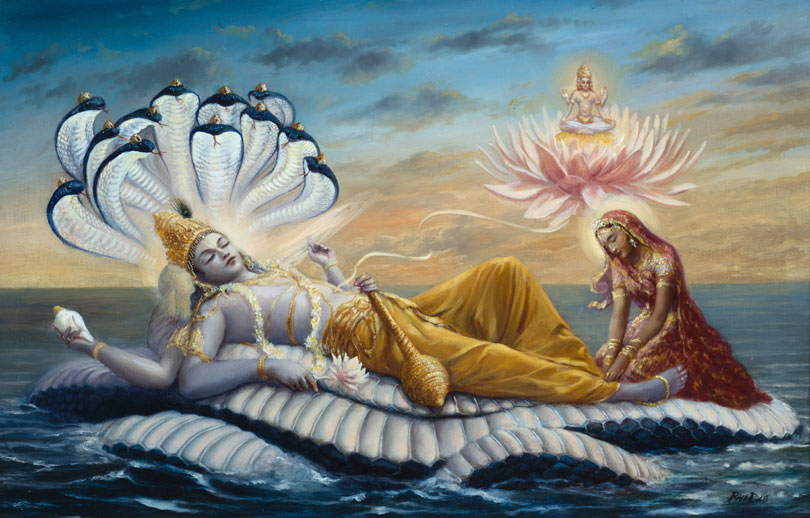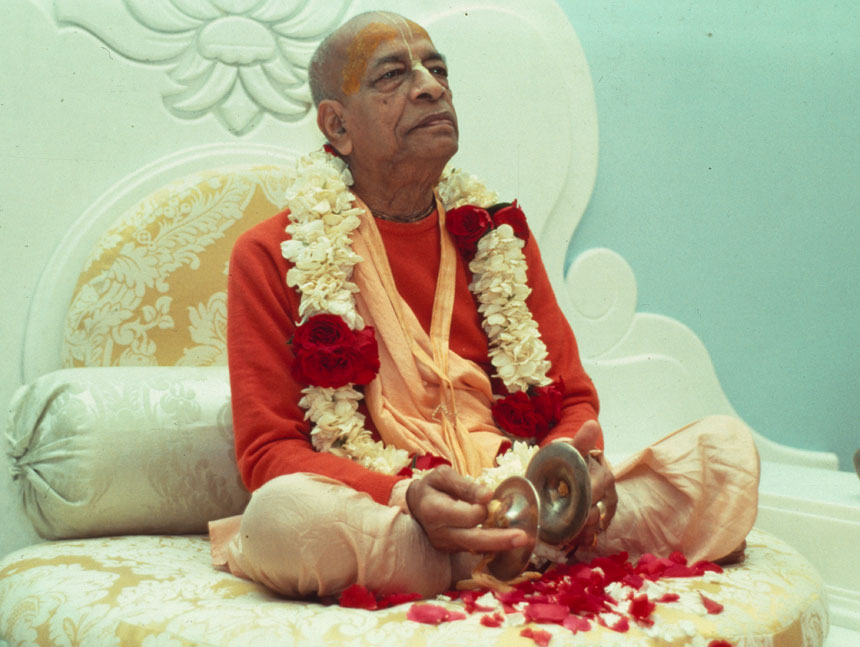
Basics of Spirituality
Who am I?
-
“I am not this body but I am spirit soul”
- The first step in spiritual science is to know the difference between a living body and dead body.
- The difference is that when someone dies, the spirit soul, or the living force, leaves the body. Therefore the body is called “dead”
- Soul does not have birth or death.
Definition of God
- Source of everything
- Supreme Controller
- Supreme Proprietor
- Supreme Enjoyer
- Bhagavan – 6 Opulences –One who is in possession of all six of these opulences, and to an unlimited degree, is understood to be the Supreme Personality of Godhead
- Wealth,
- Strength,
- Fame,
- Beauty,
- Knowledge,
- Renunciation
Who is Krishna?
- Krishna is the supreme personality of Godhead.
- Based on the evidence given in the Vedic scriptures and on the authority of the great saintly people like Narada, Vyasadeva, Arjuna etc.
- Our aim of life is to satisfy the Supreme Lord, Vishnu or Krishna.
Who is a Guru / bonafide spiritual master?
- In the Vayu Purana an acharya is defined as one who knows the import of all Vedic literatures, abides by their rules and regulations, and teaches his disciples to act in the same way.
Who is Srila Prabhupada?
- A bonafide spiritual master in the disciplic succession of Krishna.
- He authored over 70 volumes of books on the Krishna tradition, which are highly respected by scholars for their authority, depth, fidelity to the tradition and clarity.
- He is the founder Acharya of International Society for Krishna Consciousness (ISKCON).
- Srila Prabhupada circled the globe 14 times on lecture tours, bringing the teachings of Lord Krishna to thousands of people on 6 continents.
- He has established more than 108 Krishna Temples around the world.
Who is Caitanya Mahaprabhu?
- Lord Sri Caitanya Mahaprabhu is Sri Krishna Himself.
- Lord Sri Caitanya Mahaprabhu, the great apostle of Love of God and the father of the congregational chanting of the holy name of the Lord, adverted Himself at Sridhama Mayapura.
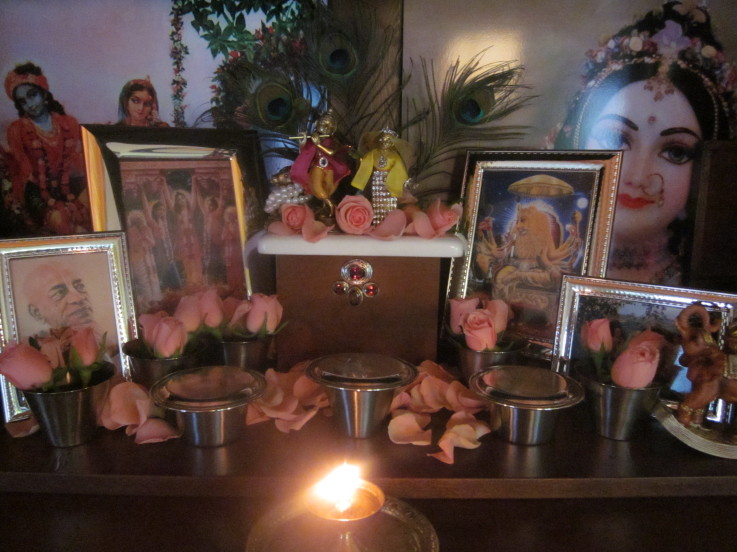
Setting up Home Altar
The purpose of spiritual knowledge is to bring us closer to God, or Krishna. Krishna says in the Bhagavad-gītā (18.55), bhaktyā māṁ abhijānāti: “I can be known only by devotional service.” Knowledge guides us in proper action. Spiritual knowledge directs us to satisfy the desires of Krishna through practical engagements in His loving service. Without practical application, theoretical knowledge is of little value.
Putting On Tilak
Tilaka refers to the markings which Vaisnava devotees apply to their bodies, to remind themselves and others that we are all eternal servants of Lord Krsna. The U-shaped mark represents the heel of Lord Visnu, and the oval part represents the Tulasi leaf. Tilaka is applied to twelve parts of the body, and the twelve names of the Lord are recited with each application.
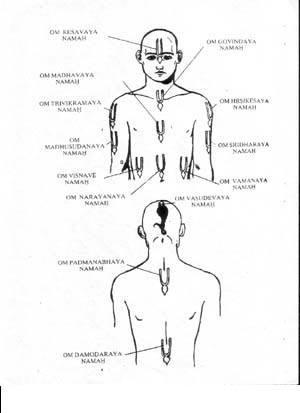
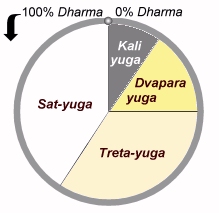
The Four Yugas
Each yuga is an age with specific characteristics in which incarnations of Krsna appear. The four yugas make up a cycle called divya-yuga, which lasts 4,320,000 years. One thousand of these yugas equal one day of Brahma, which is called a kalpa. Brahma’s lifespan is 100 years of his time. In each yuga there is a specific process of self-realization (yuga dharma).
Chanting the Hare Krishna Mantra
The first principle in devotional service is to chant the Hare Krishna mahā-mantra (mahā means “great”; mantra means”sound that liberates the mind from ignorance”):

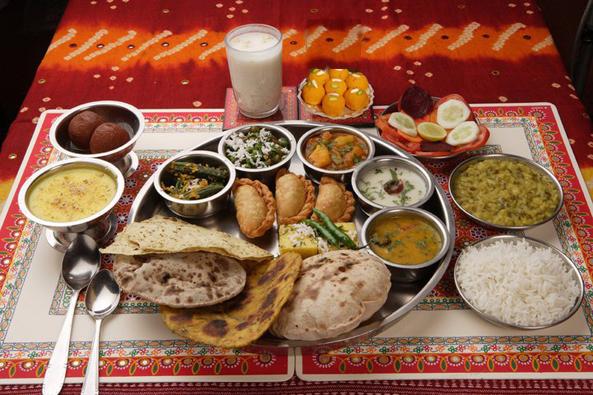
Prasādam
Eating prasādam is a fundamental practice of bhakti-yoga. In other forms of yoga one must artificially repress the senses, but the bhakti-yogī can engage his or her senses in a variety of pleasing spiritual activities, such as tasting delicious food offered to Lord Krishna. In this way the senses gradually become spiritualized and bring the devotee more and more transcendental pleasure by being engaged in devotional service. Such spiritual pleasure far surpasses any material experience.
Ekadashi
Ekadashi is a well-known fasting day. Learn more about Ekadashi, its purpose and benefits, and how to observe Ekadashi-vrata.
